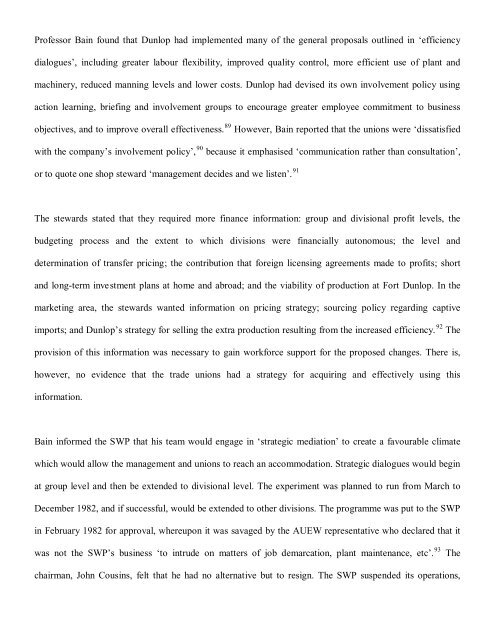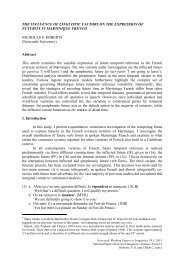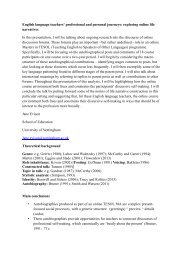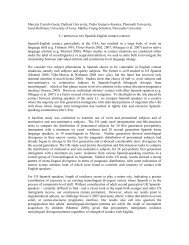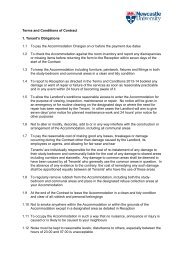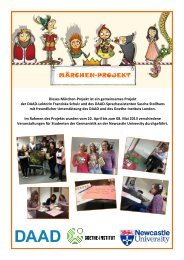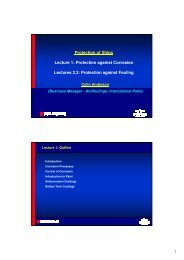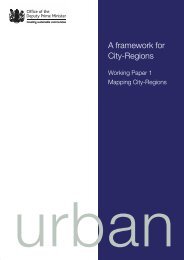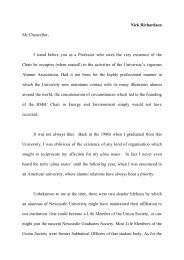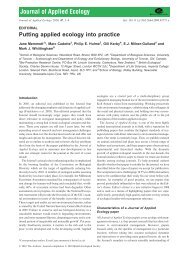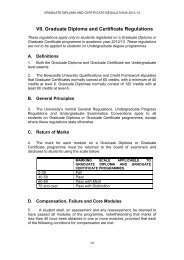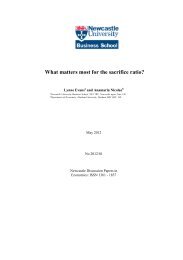The decline of the British tyre industry - Newcastle University
The decline of the British tyre industry - Newcastle University
The decline of the British tyre industry - Newcastle University
You also want an ePaper? Increase the reach of your titles
YUMPU automatically turns print PDFs into web optimized ePapers that Google loves.
Pr<strong>of</strong>essor Bain found that Dunlop had implemented many <strong>of</strong> <strong>the</strong> general proposals outlined in ‘efficiency<br />
dialogues’, including greater labour flexibility, improved quality control, more efficient use <strong>of</strong> plant and<br />
machinery, reduced manning levels and lower costs. Dunlop had devised its own involvement policy using<br />
action learning, briefing and involvement groups to encourage greater employee commitment to business<br />
objectives, and to improve overall effectiveness. 89 However, Bain reported that <strong>the</strong> unions were ‘dissatisfied<br />
with <strong>the</strong> company’s involvement policy’, 90 because it emphasised ‘communication ra<strong>the</strong>r than consultation’,<br />
or to quote one shop steward ‘management decides and we listen’. 91<br />
<strong>The</strong> stewards stated that <strong>the</strong>y required more finance information: group and divisional pr<strong>of</strong>it levels, <strong>the</strong><br />
budgeting process and <strong>the</strong> extent to which divisions were financially autonomous; <strong>the</strong> level and<br />
determination <strong>of</strong> transfer pricing; <strong>the</strong> contribution that foreign licensing agreements made to pr<strong>of</strong>its; short<br />
and long-term investment plans at home and abroad; and <strong>the</strong> viability <strong>of</strong> production at Fort Dunlop. In <strong>the</strong><br />
marketing area, <strong>the</strong> stewards wanted information on pricing strategy; sourcing policy regarding captive<br />
imports; and Dunlop’s strategy for selling <strong>the</strong> extra production resulting from <strong>the</strong> increased efficiency. 92<br />
<strong>The</strong><br />
provision <strong>of</strong> this information was necessary to gain workforce support for <strong>the</strong> proposed changes. <strong>The</strong>re is,<br />
however, no evidence that <strong>the</strong> trade unions had a strategy for acquiring and effectively using this<br />
information.<br />
Bain informed <strong>the</strong> SWP that his team would engage in ‘strategic mediation’ to create a favourable climate<br />
which would allow <strong>the</strong> management and unions to reach an accommodation. Strategic dialogues would begin<br />
at group level and <strong>the</strong>n be extended to divisional level. <strong>The</strong> experiment was planned to run from March to<br />
December 1982, and if successful, would be extended to o<strong>the</strong>r divisions. <strong>The</strong> programme was put to <strong>the</strong> SWP<br />
in February 1982 for approval, whereupon it was savaged by <strong>the</strong> AUEW representative who declared that it<br />
was not <strong>the</strong> SWP’s business ‘to intrude on matters <strong>of</strong> job demarcation, plant maintenance, etc’. 93 <strong>The</strong><br />
chairman, John Cousins, felt that he had no alternative but to resign. <strong>The</strong> SWP suspended its operations,


